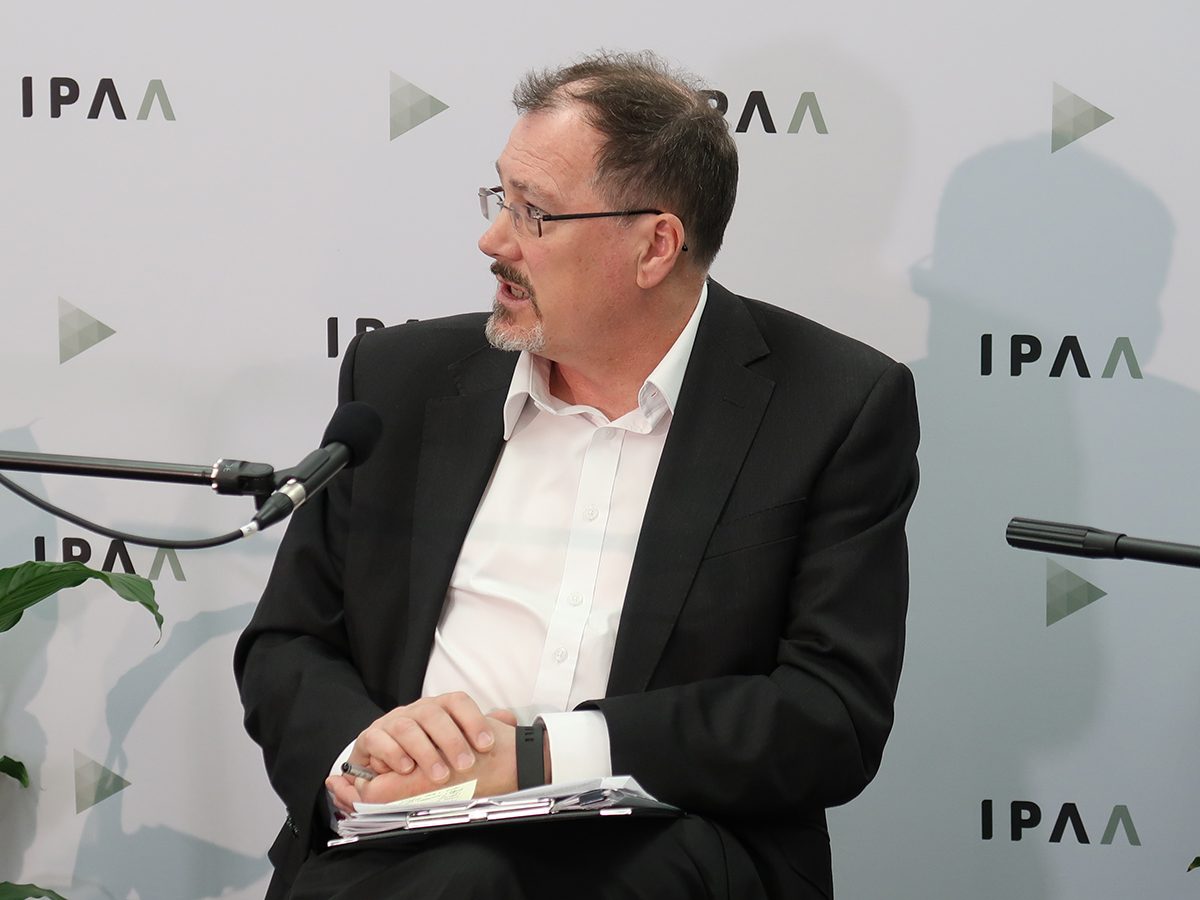
Commonwealth Ombudsman Iain Anderson notes how COVID has swamped his office. Photo: IPAA.
The Commonwealth Ombudsman barely met a quarter of its service standards targets in the past financial year, being responsive to only 24 per cent of public complaints.
Its ongoing target is to respond to 90 per cent of complaints made to the office, but the year’s efforts saw a drop from a 47 per cent response rate in 2021-22, which plummeted from a more respectable 78 per cent in 2020-21.
The Ombudsman’s annual report published this month outlines a steady decline in responsiveness against some key performance indicators and attributes the blame to the pandemic.
“While we work to engage effectively with complainants and appropriately exercise our powers and resources, in 2022–23, we only met our services standards 24 per cent of the time against a target of 90 per cent,” the report states.
“Complaint handling is core to our purpose, and we recognise that the public expects a timely and client-focused service.
“Over the course of the COVID-19 pandemic and the associated restrictions, we accumulated a backlog of complaints.
“This meant that, although we were actively resolving complaints, when we did so, we had already exceeded the timeframes we aim to achieve for complaints.
“It also meant that new complaints received during the year were waiting for extended periods to be considered, again leading to us exceeding the timeframes we aim to achieve.”
The office had a target of 65 per cent of complainants surveyed rating services as ‘satisfied’ or better, but only 38 per cent provided such a rating.
A similar target of 65 per cent was sought for the office’s clients being satisfied with its ‘independence’ – but only 44 per cent said they were.
The year before, those ratings were 61 per cent and 62 per cent, respectively.
“This [year’s result] is a decrease in performance when compared to the previous year’s outcomes,” the report states.
“We accept that we need to improve in a range of areas, particularly the time it takes to make a decision on complaints and our communication with complainants during the complaint process … The office is committed to improving service delivery and using complainant feedback to identify key areas of focus.”
During the year, the Commonwealth Ombudsman focused on a range of improvement strategies, including enhanced methods of communication, systems to reduce wait times for complaint handling and increased phone contact hours.
“This focus will continue in 2023–24. For example, early resolution of complaints is an identified priority in the 2023–24 Corporate Plan.”
Many KPIs were met or exceeded, particularly in relation to its need to maintain the confidence of the Federal Parliament. One hundred per cent of reports were delivered within statutory timeframes, meeting a target of 100 per cent.
Outputs delivered under the Australian Aid arrangements had a target of 89 per cent but were met with 100 per cent achievement.
And 89 per cent of recommendations in public reports were accepted by the agency or organisation, exceeding a 75 per cent target.
There was a 93 per cent satisfaction rate from agencies and organisations happy with the quality of the Ombudsman’s reports, surpassing its target of 80 per cent.
Iain Anderson was appointed Commonwealth Ombudsman on 1 August 2022 for a five-year term.
Deputy Ombudsman Penny McKay was the acting Commonwealth Ombudsman prior to Mr Anderson’s appointment.
Mr Anderson started his tenure as the 11th Commonwealth Ombudsman as Australia began to recover from the disruptions caused by the COVID-19 pandemic.
“In many ways, the pandemic shifted the relationship between the public and government services agencies,” he wrote in his review of the annual report.
“It also placed significant demands on the Australian Public Service, and in turn, public administration has been put in the spotlight more than ever.
“The purpose of the office has never been more important.
“That is, to provide assurance that government and private sector entities we oversee act with integrity and treat people fairly while influencing enduring systemic improvement in public administration.”
Original Article published by Chris Johnson on Riotact.










